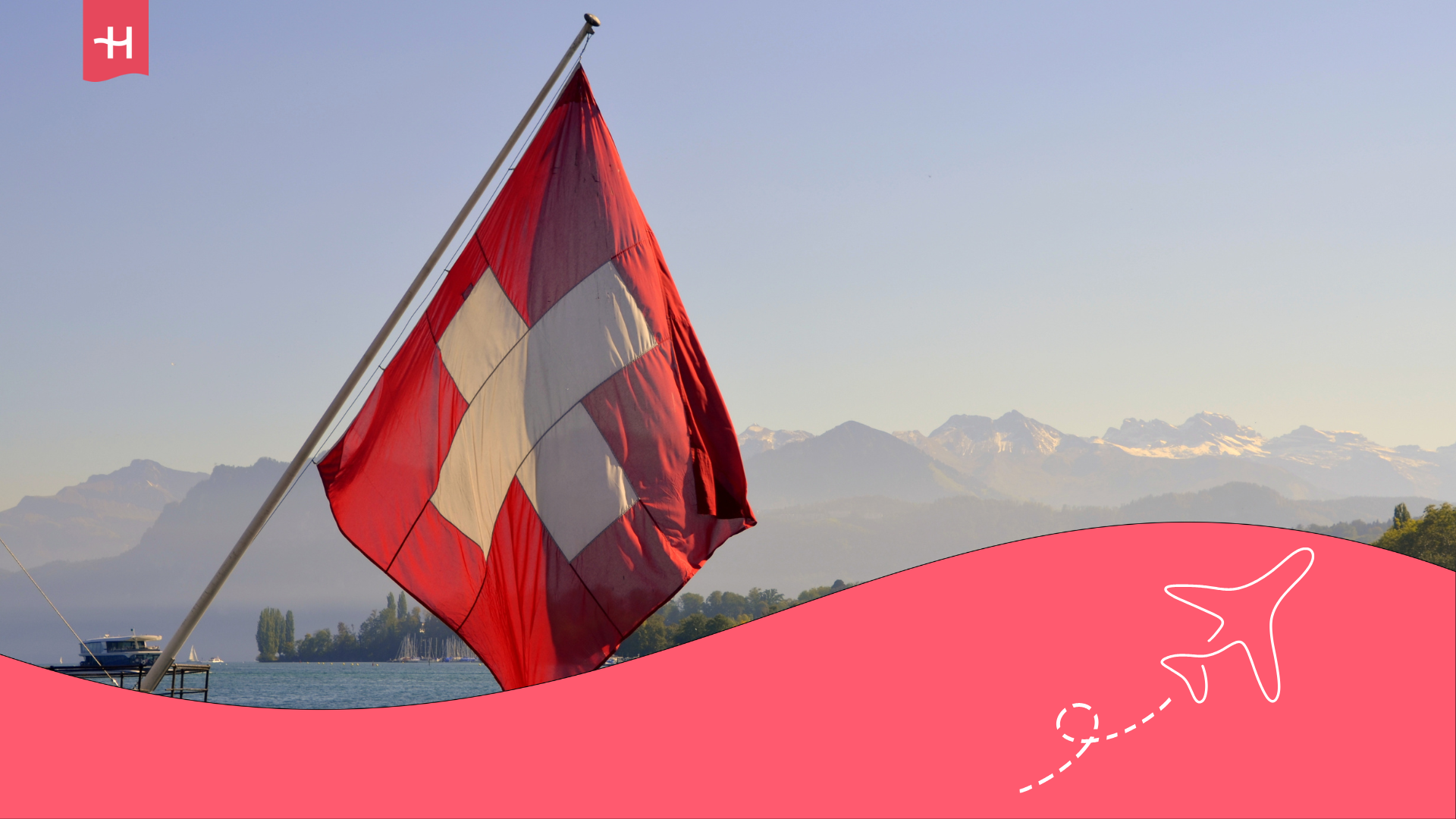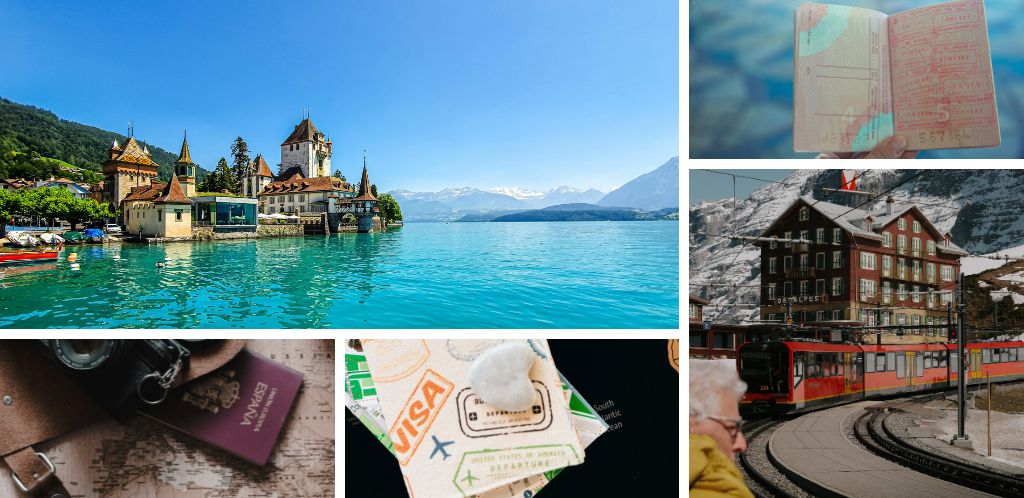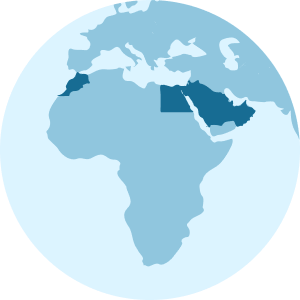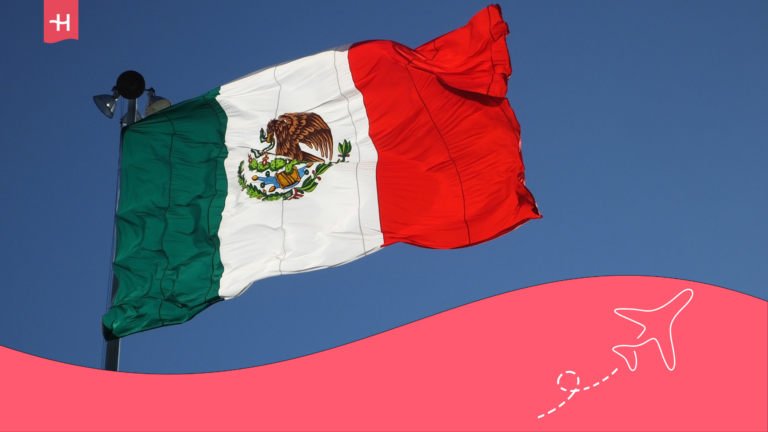Requirements to travel to Switzerland from Spain
Planning a trip to Bern, Lucerne or any other Swiss corner? These are the requirements to travel to Switzerland from Spain in 2025.
Planning a trip to enjoy the breathtaking landscapes of Switzerland? If so, you should be aware of the requirements to travel to Switzerland from Spain. While Switzerland isn’t the strictest when it comes to Spanish travelers, you can’t just walk in without any checks. Border officials might ask you to show the reason for your visit or confirm that you meet certain requirements before they allow you to enter. If everything isn’t in order, you could face some issues.
To help you breeze through the airport and dive right into Switzerland’s incredible food and breathtaking scenery, we’ve put together a handy guide with everything you need to prepare. From essential documents and possible visa requirements to what to expect at immigration and a few extra tips to keep things hassle-free—we’ve got you covered. Want to make sure you’re all set before your flight?

A piece of advice before traveling to Switzerland
Before we dive into the requirements for traveling to Switzerland from Spain in 2025, let us give you a quick tip. It’s not mandatory, but having internet access from the moment you land will make your trip much smoother. Unlike in other European countries, your Spanish mobile plan won’t work in Switzerland without paying roaming fees. That means you’d have to rely on airport WiFi or hunt for a local SIM card just to check your hotel address, look up train schedules, or let your family know you’ve arrived safely. Getting connected right away will save you a lot of hassle.
For short trips, Holafly’s eSIM for Switzerland is the easiest option. It gives you unlimited data, activates in minutes, and saves you the hassle of finding a physical SIM or dealing with roaming charges. Just pick the number of days you need, and you’re connected right away.
Staying for a longer trip? In that case, Holafly Connect’s global internet plans might be a better fit. You can choose between 10GB, 25GB, or unlimited data—switching plans or canceling anytime based on your needs. Plus, with the 25GB and unlimited options, you can share your connection with your laptop or tablet.
Both options can be set up in just minutes, even before you leave Spain. That way, you’ll have internet access as soon as you land in Switzerland—no need to rely on WiFi or search for a local SIM.
Important: If you are a frequent traveler and want to stay connected without worrying about expensive roaming or looking for a new SIM at every destination, Holafly’s subscription plans are for you. With a single eSIM, enjoy internet in more than 170 countries for a fixed price and no surprises on your bill. travel without limits and connect easily and securely! 🚀🌍

Having said that, let’s move on to the requirements to travel to Switzerland from Spain in 2025.
1. Airfare to Switzerland and back to Spain
The first thing to keep in mind when traveling from Spain to Switzerland is that, while it’s not a strict requirement, there are cases where you might need your return ticket.
If you’re a Spanish citizen, you can visit Switzerland for up to 90 days without needing a visa. However, when you go through immigration, they might ask how long you plan to stay and how you intend to leave the country. If you don’t have a clear answer, they could ask for proof of your departure, like a return ticket to Spain or another destination.
When can you be asked for a departure ticket?
- If you are traveling as a tourist or on business and your stay is less than 90 days, it is unlikely that you will be asked for it.
- If your trip is for a longer period and you don’t have a visa or residence permit, they may require proof that you are not planning to stay irregularly.
- In cases where your profile is in question (for example, if you cannot clearly justify your stay or your financial means), you may face additional questions.
How to avoid problems in immigration?
- Bring your return ticket printed or in digital format. This is not mandatory, but having it handy will help you avoid unnecessary questions.
- If you are traveling without a fixed return date, consider a flexible ticket. There are airlines that allow changes at no additional cost.
- If you are staying longer than 90 days, arrange for a visa before you travel to avoid being questioned at the border.
Generally, not having an exit ticket won’t stop you from entering Switzerland, but it’s always best to be prepared. Having a confirmed reservation can make the immigration process smoother and help you get through without any hassle.
2. Tourist, residence or work visas for Switzerland
Traveling to Switzerland is pretty straightforward for Spanish citizens. If you’re visiting for tourism or business and staying up to 90 days, you won’t need a visa. But you can’t stay indefinitely. If your plan is to live, study, or work there, you’ll need the proper visa. Here are some of the most common options:
1. Student visas
Enrolling in a Swiss university isn’t enough to stay in the country long-term. If your stay exceeds 90 days, you’ll need to apply for a national Type D visa. Without it, you won’t be able to start your studies or remain in Switzerland legally.
What will you be asked for?
- Letter of acceptance from the university or institution where you will study.
- Proof of financial solvency showing that you can afford your stay. It can be the proof of your scholarship to study in Switzerland.
- Medical insurance valid in the country, mandatory for foreign students.
Once you arrive there’s another step. You’ll need to register with the cantonal migration office to get your residence permit. Without it, your visa won’t remain valid.
2. Work visas
You can’t just arrive in Switzerland and start job hunting. To work there, you need a job offer before applying for a visa. Plus, it’s your employer who has to handle the work permit process on your behalf.
There are three main types of permits:
- L Permit → For temporary employment contracts of up to 12 months.
- B Permit → For long-term employment (more than one year).
- C Permit → Permanent residence, granted after several years living in Switzerland.
If you’ve secured a job offer, make sure your employer starts the paperwork well in advance. The process can take weeks or even months, and without an approved permit, you won’t be able to legally work in Switzerland.
3. Residence visas
Not everyone can just move to Switzerland. To get a residence visa, you’ll need to prove that you have enough income to support yourself without working. Also, Swiss health insurance is mandatory as part of the permit.
This type of visa is designed for retirees or people with passive income. The process can take months, so if you’re thinking about moving, it’s best to start the paperwork as early as possible.
3. Passport for traveling to Switzerland
You don’t need a passport to travel to Switzerland from Spain—your national ID (DNI) is enough. Just make sure it’s in good condition and doesn’t expire while you’re there. If you choose to travel with a passport instead, it’s best to have at least three months of validity beyond your planned departure date.
Bringing kids along? Check if any special permits are needed. If they’re traveling alone or with just one parent, additional documents might be required. It’s not always enforced, but having everything ready can help you avoid problems.

4. Address of the place of accommodation in Switzerland
Do you already know where you’ll be staying in Switzerland? It might seem like a minor detail, but immigration officers could ask. A vague answer like “at a hotel” won’t be enough—you’ll need to provide a specific address.
If you’re booking a hotel, Airbnb, or coliving space, make sure to have your reservation details with you. If you’re staying with friends or family, it’s best to have their address on hand—and if possible, a signed invitation from your host.
They don’t always ask for it. But if they do and you don’t have a clear answer, it could lead to more questions and delay your entry. If you’re planning to visit multiple cities in Switzerland, it’s a good idea to have a list of all your accommodation addresses to avoid any issues at immigration.
5. Passing the immigration control in Switzerland
You’ve landed in Switzerland, picked up your luggage, and now you’re in line for immigration control. This is the final step before officially entering the country. It’s usually straightforward, but being prepared is key. The immigration officer will check your passport or ID and may ask you questions like:
- What is the reason for your trip?
- How long do you plan to stay in Switzerland?
- Where will you stay?
- Do you have a return ticket to Spain?
If you’re traveling with a visa, make sure to have all the supporting documents with you. For tourists, the most important things are knowing your allowed length of stay and, as mentioned earlier, proving where you’ll be staying.
Although it’s rare for Spanish citizens to be denied entry, the officer has the authority to do so if there are any discrepancies in your information. The best thing you can do is have all your documents in order and answer clearly.
6. ETIAS for travel to Switzerland from Spain (2025)
Note that this is a new requirement. Starting in 2025, Spanish travelers will need to present the ETIAS (European Travel Information and Authorization System) to enter Schengen Area countries, including Switzerland.
No worries, it is not a visa, but an entry permit that you must process before traveling. You complete the process online, and it’s very simple.
How to obtain the ETIAS?
- Fill in the online application form on the official website.
- Pay the fee of 7 euros ($10) (under 18 and over 70 years old are exempt).
- Wait for approval, which is usually fast (within minutes or a few hours).
Once approved, the ETIAS will be valid for three years and will allow multiple entries into Switzerland for stays of up to 90 days.
If you travel without this permit, immigration officials may refuse you entry, so be sure to apply for it before you fly.
7. Health insurance for traveling to Switzerland
Medical insurance is not a strict requirement for tourists, but it’s definitely something worth considering. Switzerland has one of the most expensive healthcare systems globally, and without insurance, even a basic doctor’s visit or treatment could cost you a small fortune.
If you’re traveling with a work or residence visa, it’s mandatory to have health insurance for foreigners in Switzerland. For short stays, you can use the European Health Insurance Card (EHIC), but it doesn’t cover everything. A private insurance plan will protect you in case of emergencies, hospital stays, or repatriation.
What should a good travel insurance for Switzerland include?
- Comprehensive medical coverage, with a minimum of 30,000 euros ($33,000) in health care.
- Emergency care, hospitalization and repatriation.
- Coverage for unforeseen events, such as loss of luggage or trip cancellations.
Other travel tips for Switzerland
With that, we’ve covered all the essentials for traveling to Switzerland from Spain. However, there are a few things that, while not mandatory, can make your experience more enjoyable. What else should you keep in mind before your trip to Switzerland?

1. Travel insurance for Switzerland
As we mentioned before, it’s not required for tourists, but having health insurance is a very wise choice. Switzerland has one of the priciest healthcare systems globally, and without coverage, medical bills can quickly add up. A simple doctor’s visit could cost between 100 and 150 euros ($108 to $162), and an emergency hospital stay might easily top 1,000 euros ($1,080) a day.
A good international travel insurance policy covers medical expenses, hospital stays, repatriation, and assistance for unexpected situations like lost luggage or flight cancellations. If you’re planning to ski in the Alps, make sure your policy includes coverage for winter sports.
2. Driving license in Switzerland
If your plan includes renting a car for more freedom to explore, you’ll be happy to know that your Spanish driver’s license is valid in Switzerland for short stays. You don’t need an international permit to rent a car or drive around the country.
However, some rental companies may ask for it, especially if your driver’s license is quite old or if you plan to travel to areas far from tourist hotspots. Before booking, it’s a good idea to check with the agency to see if they’ll require it, so you can avoid any surprises.
Bear in mind that Swiss authorities strictly enforce traffic rules. They monitor speed limits closely, and fines can be hefty. Also, to drive on highways, you’ll need a vignette (an annual toll sticker) which costs 40 Swiss francs ($45). Most rental cars already include it, but if you’re using your own car, you’ll need to purchase it before entering the country.
In winter, if you plan to drive in mountainous areas, make sure the car has the right tires and carry snow chains. On some routes, it’s mandatory, and weather conditions can change quickly.
If you’d rather skip the car, no worries. Switzerland has one of the best public transport systems in Europe. With trains, trams, and buses reaching even the most remote areas, getting around without a car is completely doable. But if you’re a fan of driving, make sure everything’s in order to avoid fines or issues during your trip.
3. Cards, cash and payment options in Switzerland
In Switzerland, credit cards are the easiest way to pay at most places. Restaurants, supermarkets, public transport, and stores widely accept Visa, Mastercard, and American Express. However, people still commonly use cash in smaller shops, local markets, and rural areas.
To avoid any hassles, it’s wise to always have some cash on hand. Although the official currency is the Swiss franc, most places will accept euros. However, you’ll get your change in francs, and the exchange rate may not be great.
If you’re using your Spanish card, make sure to check for currency conversion fees. Some banks add a 3-5% fee for purchases in Swiss francs. To avoid extra charges, you can use cards like Revolut, N26, or Wise, which allow you to pay in the local currency without additional fees.
If you’re going to be staying for a while, opening a Swiss bank account can simplify your everyday transactions and help you avoid extra fees. UBS, Credit Suisse, and PostFinance are some of the top banks for foreigners. Their basic accounts often offer fee-free cash withdrawals and make handling payments in Swiss francs easy.
4. Vaccinations when traveling to Switzerland
The good news is there are no required vaccinations for entry into Switzerland. If your vaccination record is up to date in Spain, you’re all set. However, if you’ve visited countries with a yellow fever risk, they might ask for proof of vaccination.
As a precaution, it is advisable to have up to date vaccinations such as:
- Tetanus and diphtheria, especially if you are going to do outdoor activities.
- Measles, mumps and rubella, especially if you are traveling with children.
- Hepatitis A and B, in case you plan long stays.
Never traveled to risk areas and have your usual vaccinations up to date? No need to do anything special to enter Switzerland.
Frequently asked questions on requirements to travel to Switzerland from Spain?
As a Spanish citizen traveling for tourism or business for less than 90 days, you don’t need a visa. However, if you plan to stay longer, study, or work in Switzerland, you’ll need to apply for the appropriate visa before your trip.
The ETIAS will cost 7 euros ($10) and will be required starting in 2025 to enter Switzerland and other Schengen countries. The approval process is usually quick, often taking just a few minutes or hours. However, it’s recommended to apply at least 72 hours before your trip to avoid any issues.
You’ll need to show a valid passport or ID and answer questions about your trip. While it’s not always necessary, it’s wise to have your accommodation confirmation and a return ticket if you’re staying for a short time. They might also ask for proof of financial stability, like bank cards or enough cash to cover your stay.
While it’s not mandatory for tourists, it is for those traveling with a work or residence visa. However, it’s strongly recommended to have travel insurance that covers medical expenses, as Switzerland’s healthcare is one of the priciest globally. A basic doctor’s visit can cost more than 100 euros ($110), and a hospital stay can easily go over 1,000 euros ($1,080) per day.
Yes, your Spanish driver’s license is accepted in Switzerland for short visits. An international permit isn’t necessary, although some rental companies might ask for it. If you’re traveling in winter, make sure the car has snow tires or bring chains, since some mountain roads require them.
There are no mandatory vaccines for traveling to Switzerland from Spain. However, if you’ve recently been to a country with a yellow fever risk, you may be asked to show proof of vaccination.














































 Pay
Pay  Language
Language  Currency
Currency 


















 No results found
No results found







